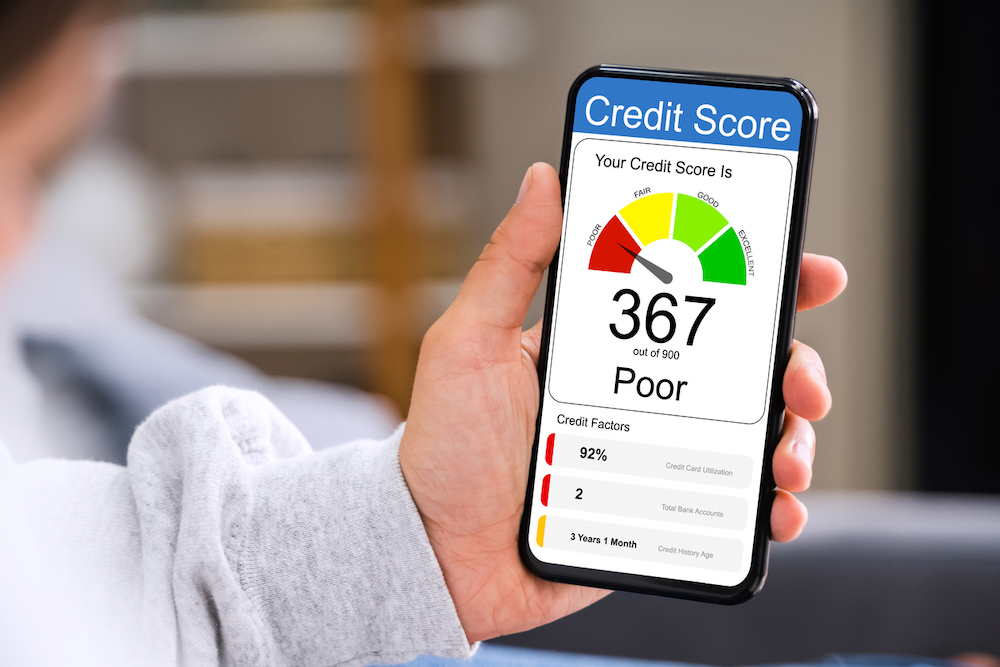Bad Credit Homeowner Loans
Bad Credit Homeowner Loans
Can you get a homeowner loan if you have bad credit? Yes, it is possible. Having bad credit doesn’t mean you won't be able to get a homeowner loan, but it usually means you will pay a higher interest rate.
What Is A Bad Credit Homeowner Loan?
A bad credit homeowner loan is a loan taken out where the applicants have bad credit registered against them.
A homeowner loan, a secured loan, a second mortgage, or a second charge is a loan where the lender holds a legal charge against the applicant's home, meaning that if you cannot repay the loan, the lender may repossess the property.
You must feel that you can easily afford the repayments with a homeowner loan and consider if you could still make repayments if you lose your job, have an overtime reduction or have your hours cut. Conducting a full income and expenditure assessment to see how much surplus income you have available for loan repayments would be wise.
Bad credit is usually defined as the following:
-
Missed credit card repayments.
-
Missed mortgage repayments.
-
A default registered against an applicant.
-
A county court judgment registered against an applicant.
The interest rate with a homeowner loan will be considerably higher for some with adverse credit. To get an exact idea of your credit situation, get a copy of your credit report from one of the three leading credit reference agencies: Equifax, Experian, or TransUnion.
If you have several county court judgments (CCJs), your credit score will likely be low, resulting in you being charged a higher interest rate with lenders.
If you are offered a loan but the interest rate is high, it is worth considering how essential it is to take out a loan. If you need to carry out emergency home improvements to make your property secure or watertight, for example, then there is a need to take out a loan. However, borrowing for a new bathroom may not be a good idea. In this scenario, ensuring you meet all future loan, mortgage, and credit card payments would make sense, resulting in your credit score increasing, and you can borrow at a lower interest rate. At this point, you will be in a better position to borrow for home improvements.

Can I Get A Homeowner Loan With Bad Credit?
Subject to how much bad credit you have registered against you will determine if you can take out a homeowner loan.
The amount you can borrow may be restricted if several defaults and county court judgments are registered against you. Lenders typically reduce the loan to value (LTV) they are prepared to lend if you have adverse credit registered against you. A borrower with adverse credit may only be able to borrow up to, say, 60% of the value of their property. For example, if you have a property worth £400,000 and a mortgage of £200,000, you can only borrow £40,000 (subject to other criteria). To arrive at £40,000, you multiply the value of £400,000 by 60% = £240,000, minus the current mortgage of £200,000.
Another factor the lender will take into consideration is your income. The lender will conduct a detailed affordability check to ensure you can afford the monthly repayments. You need to feel confident you can make the monthly payments because if you miss repayments, you could potentially have your home repossessed, leaving you homeless.
You must be realistic with your finances to ensure you can comfortably meet the monthly repayments.
Can I Take Out A Loan On My House With Bad Credit?
Yes, you can potentially take out a loan secured against your house even if you have a poor credit history.
You need to get advice to see how much you can borrow and at what interest rate. It might be that the lender is not prepared to lend you as much as you need, and what they are prepared to lend you might be at a high interest rate. In this scenario, it would make sense to improve your credit score, at which point you may be able to borrow the total amount you want, and the interest rate should be more competitive.
You should speak to a specialist mortgage broker who understands the second mortgage market and will have the skills to source the best second mortgage product to suit your circumstances.
Part of the process for the mortgage broker will be to look at other ways that you might be able to raise finance, which might include:
-
An unsecured loan. Generally, anyone who has adverse credit registered against them will find it hard to be accepted for a personal loan. The loan size offered is likely to be very small, with the interest rate very high.
-
A further advance from your current mortgage lender. If the adverse credit is two or three years old, your mortgage lender may consider offering you further monies if they see that the poor credit score relates to a historic issue.
-
A full remortgage. This would involve getting a new mortgage to pay off your current mortgage plus the new amount you want to borrow. For example, if your current mortgage is £200,000 and you want to borrow a further £50,000, you would need a mortgage of £250,000. Again, the interest rate offered might be high if the adverse was recent. In this scenario, it may be best to keep the current mortgage, which should be competitive, and raise the funds through a second charge.
The mortgage broker will complete a full fact find and a detailed report of your personal information and requirements.
From this information, the broker will establish which type of loan is most suitable for you and prepare an illustration of their proposal. This will include the loan amounts, the loan term, all fees, and any early repayment charges that may be applicable, whether the loan has a fixed rate or if it's a variable rate. It also includes information on who you should complain to if required.
If you want to proceed with the recommendation, the broker will make a loan application to the lender. The lender will then report back to the broker with a list of requirements to be provided, which could include:
-
Your wage slips and your most recent bank statements that show your wages going in.
-
If self-employed, you may be asked to send in your most recent SA302s, or your accountant may be required to complete a reference.
-
A copy of a death or marriage certificate.
-
Proof of residency, which might be a recent utility bill.
-
Proof of ID, which might be your passport or driving licence.
-
A written explanation of why you have had any adverse credit registered against you.
At the same time, the broker may have to write to your mortgage company to see if their permission is required for the second charge lender to register their charge. This process can take 10 - 14 days to complete. If the mortgage company is slow to respond, it can help if you chase the mortgage company to ask them to reply to the request as quickly as possible.
In addition, a valuation is always required. Depending on the lender and the amount you want to borrow, some lenders will allow an automated valuation, which can be carried out instantly at only approx £40.
Alternatively, the lender may request that a complete internal valuation be carried out. The only disadvantage with this is that it can slow down the processing of the application. The valuer must first make an appointment with the applicant; they visit the property and conduct research to justify the valuation figure before preparing the report. This can add two to three weeks to the overall completion time.
Typically, before completion, the lender telephones and speaks to all applicants. This is partly a security/fraud check, and it allows the lender to ask the applicants if they fully understand the loan terms, including how much they are borrowing and any fees being charged.
On completion of satisfactory security calls, the lender will release the funds. Monthly repayments usually start a month after the loan is completed.
What Homeowner Loan Can I Get With A Credit Score Of 500?
Each credit reference agency operates a different way of credit scoring people. While one agency may score a person 400, another agency might score that person 450.
In addition, some second mortgage lenders do not consider the applicant's credit score when assessing an application. Instead, they will consider the number of county court judgments or defaults a person has when assessing their application. For example, someone with six CCJs will pay a higher interest rate than someone with two CCJs.
For more information about homeowner loans, regardless of your credit score, contact our expert team.
As a mortgage is secured against your home, your home could be repossessed if you do not keep up the mortgage repayments. Think carefully before securing other debts against your home.

